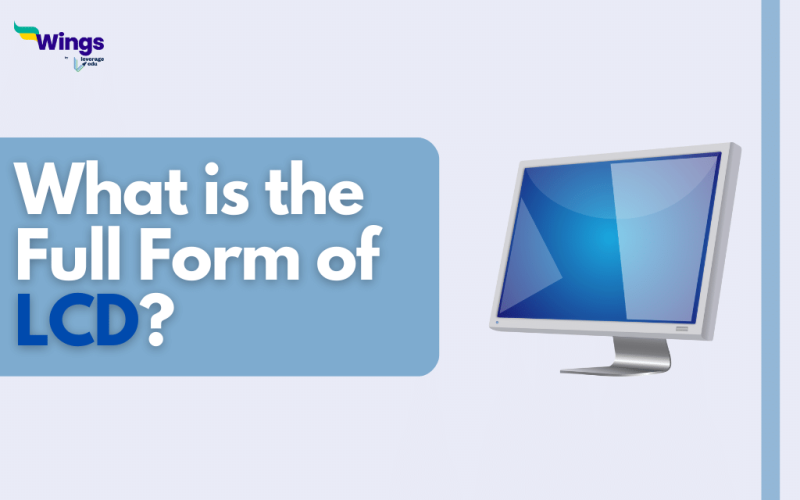The full form of LCD is Liquid Crystal Display. LCD refers to it in its fullest definition. LCD, a flat-panel display format commonly found on television and computer screens, is also utilised in cell phones. These LCDs are entirely different from previous CRT displays since they use liquid crystals rather than cathode rays.
To form the LCD’s pixels, millions of crystal-based pixels are placed in a rectangular pattern on the LCD panel. Some LCD backlights illuminate each pixel. Every pixel has Red, Green, and Blue (RGB) sub-pixels that can be switched on or off. When all subpixels are turned off, it is black; when all subpixels are fully turned on, it is white.
LCD Fabrication
Table of Contents [show]
- The liquid crystal display (LCD) blends the solid and liquid phases of materials.
- Because the crystal is the only solid element, the liquid and crystal produce a distinct image.
- The LCD is made up of two layers of electrodes and polarisation filters.
- An LCD panel works by blocking the light beam rather than emitting it.
- LCD pixel grids are classified into two types: Active Matrix Grid and Passive Matrix Grid.
- Smartphones with LCD displays now employ a new technology known as Active Matrix Grid.
- In some older applications, an older technique known as a passive matrix grid is still used.
The fundamentals of LCD operating
The LCD’s operation is governed by the liquid crystal colour emission principle. LCD was discovered in 1888. An LCD is an optical device with electronically modified liquid crystal segments. To display images, LCDs used liquid crystals and polarised illumination. When power is applied to LCD TVs, a broad, bright light reflects in the direction of the audience.
A list of LCD-enabled devices
- TV, Calculator, Mobile, Device
- Smartphones, Laptops
- Computers used for gaming
- Digital clocks
Also Read: Components of Computer
This was all about LCD full form. Visit our Full Form Page to discover more intriguing articles about full forms. You can also check out the consolidated 300+ full forms list!
 One app for all your study abroad needs
One app for all your study abroad needs















 45,000+ students trusted us with their dreams. Take the first step today!
45,000+ students trusted us with their dreams. Take the first step today!
